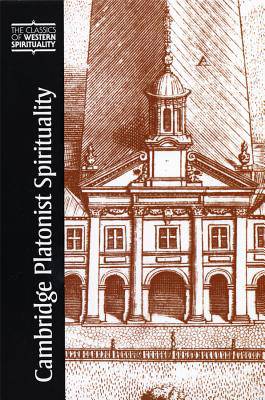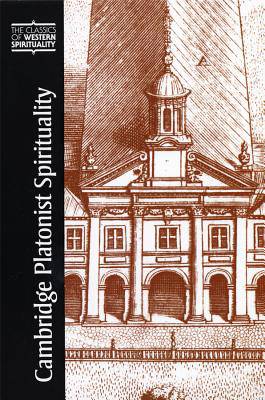
- Afhalen na 1 uur in een winkel met voorraad
- Gratis thuislevering in België vanaf € 30
- Ruim aanbod met 7 miljoen producten
- Afhalen na 1 uur in een winkel met voorraad
- Gratis thuislevering in België vanaf € 30
- Ruim aanbod met 7 miljoen producten
Zoeken
Cambridge Platonist Spirituality
€ 33,95
+ 67 punten
Omschrijving
This volume in the distinguished Classics of Western Spirituality series presents a collection of essays, poetry, and treatises by Cambridge Platonists, a movement in philosophical theology that flourished around Cambridge University in the 17th century and left a profound impact on the shape of subsequent religious life in the English speaking world. This school of thought emphasized the great goodness of God, the accord between reason and faith, an integrated life of virtue, and the deep joy of living in concord with God. In an important introduction, the editors situate the Cambridge Platonist movement in its historical and religious setting: the decades of turbulence and political crises surrounding the English Civil War. They then offer brief biographical portraits of the principal members of the movement: Benjamin Whichcote; Henry More; Ralph Cudworth; John Smith; Peter Sterry; Nathaniel Culverwell; and Anne Conway. Following the introduction is a representative sample of Cambridge Platonist writings. Scholars and students of 17th-century England, Christian spirituality of the early modern era, intellectual history, and faith and reason will appreciate this treatment of the spiritual life and work of an often overlooked, but significant, movement. +
Specificaties
Betrokkenen
- Uitgeverij:
Inhoud
- Aantal bladzijden:
- 256
- Taal:
- Engels
- Reeks:
Eigenschappen
- Productcode (EAN):
- 9780809105397
- Verschijningsdatum:
- 2/11/2004
- Uitvoering:
- Hardcover
- Formaat:
- Genaaid
- Afmetingen:
- 153 mm x 238 mm
- Gewicht:
- 494 g

Alleen bij Standaard Boekhandel
+ 67 punten op je klantenkaart van Standaard Boekhandel
Beoordelingen
We publiceren alleen reviews die voldoen aan de voorwaarden voor reviews. Bekijk onze voorwaarden voor reviews.










